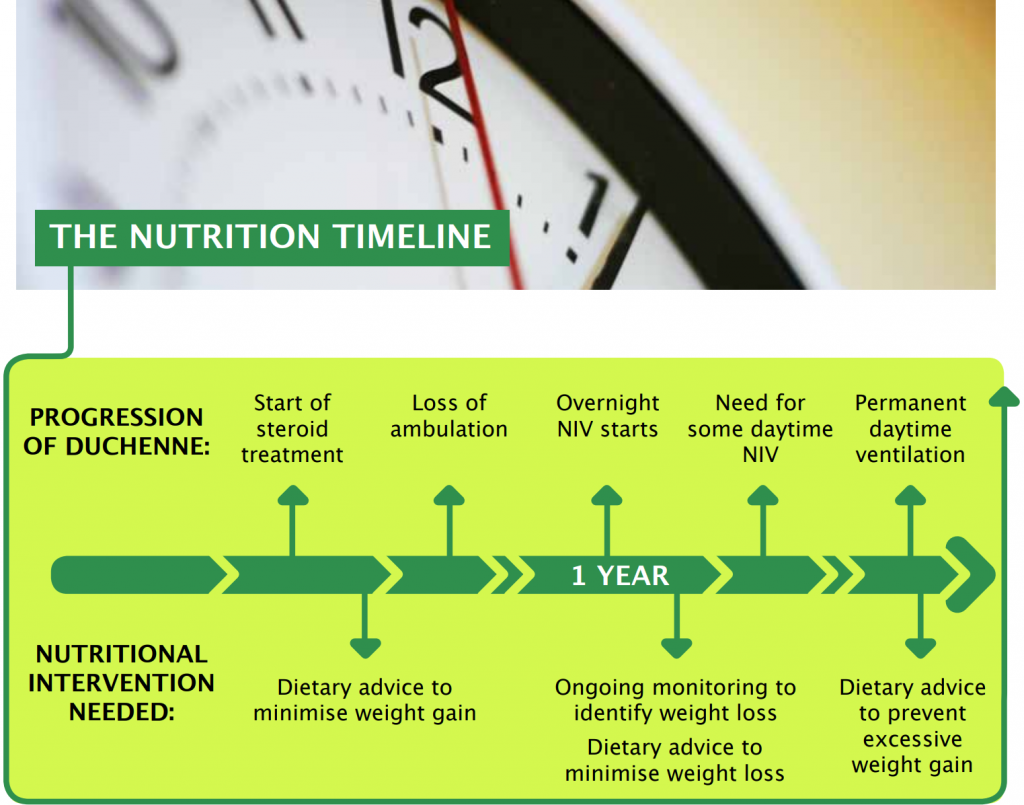
The Nutrition Timeline for People with DMD

As Duchenne progresses, nutritional issues also change. It’s important to ensure that people’s nutritional needs are met, whilst recognising that being overweight and being underweight carry health issues for people with DMD
Childhood
During childhood, especially when steroids are used and at the time when children start using a wheelchair, there is a particular risk of obesity which can impede breathing and reduce muscle function and mobility. Dietary advice to assist with maintaining a healthy weight is required.
Teenage years and adulthood
In teenage or adult years, as eating becomes more difficult and respiratory function declines, energy requirements may increase while food intake often declines, putting individuals at significant risk of undernutrition. Interventions to gain or maintain weight may be required, including dietary changes and if necessary the placement of gastrostomy tubes, to insert food directly into the stomach.
Difficulties with swallowing (dysphagia) also present problems for people with DMD and may require compensatory strategies to avoid life-threatening aspiration pneumonia. This may start in childhood but is not usually noticed until later in life.
Where dietary and swallowing interventions are successful, and adults become permanently ventilated, energy requirements decrease and once again individuals become at risk of becoming overweight.

